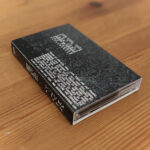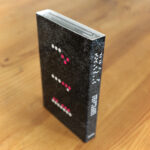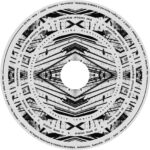Group improvisation as triangulation? Fierce solidarity? Wet, squishy electrochemical processes? And science fiction, and the fictions of science? In Ettore Garzia’s Percorsi Musicali article, Garzia asks me about my thoughts on “art and on the way we should approach the reality of the twenty-first century”:
As for the present-day hellfire 2.0 of the world, whether from strong-men political figures, or the next tech breakthrough, we’re surrounded by promises of simple solutions, and seductive stories of salvation and redemption. In this context, creative peoples, I think, can offer counter-narratives to complicate and refute those easy solutions; to instead help us face the complex, the contradictory, the uncertain and ambiguous.
As for me, empathy, compassion and solidarity remain the reasons I continue to engage with interactive, social music practices and communities. But these practices and communities are flawed and imperfect—they are deeply, deeply human after all—and I think it’s important that we remain aware of the possibility of violence and abuse in our practices, and work to take consent, power, conflict, desire and agency seriously. [Read the rest…]
And elsewhere Garzia asks about the albums Of Life, Recombinant, and Juno 3’s upcoming release:
Proxemics spreads electroacoustic power and a sense of movement, thanks to many elements, the fragmentation of the guitar, the plethora of unnatural sounds brought into play by Thomas and the small and intermittent manipulations of Lara’s sax. I discover a narration inside, but also a void, a melancholic vein. Is that so?
Lara [Jones] and Pat [Thomas] are doing some of the most exciting work in enrolling electronics into improvised performance right now. Their approaches, as different as they are, are informed by present-day technological developments while being irreverent towards those same tech enterprises; they are as avant-garde as they come while deeply engaging with the electronic dance vernacular.
I also hear that messy, contradictory, rolling narrative side to Juno 3, but, more than melancholy, I hear, with Proxemics, something angrier and confrontational—I feel, at times, that the music spits and snarls. [Read the rest…]
Read the rest of the article to catch me talking about how the works of certain writers and filmmakers have affected my work in refracting improvisation through narrative techniques and tropes; the reason for choosing the trio context (and the differences between Eris 136199, Juno 3 and Gonggong 225088); and whether I would ever return to constructing musical automata in this post-ChatGPT condition.
Selected Discography
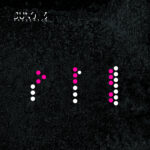
Personnel: Han-earl Park (guitar), Lara Jones (saxophone and electronics) and Pat Thomas (electronics).
Track listing: Derealization I (4:07), Derealization II (4:57), Derealization III (3:52), Derealization IV (6:19), Derealization V (5:55), Derealization VI (3:47), Proxemics I (5:05), Proxemics II (3:54), Proxemics III (6:10), Proxemics IV (7:15), Proxemics V (6:10), Proxemics VI: Rumble (5:13). Total duration: 62:44.
© and ℗ 2025 Han-earl Park.
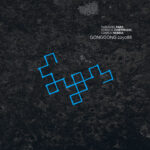
Gonggong 225088 (wa008) [details…]
Personnel: Han-earl Park (guitar), Yorgos Dimitriadis (percussion and electronics) and Camila Nebbia (saxophone).
Track listing: Autopoiesis I (≥ 10:14), Autopoiesis II (≥ 4:29), Niche Shift I (16:09), Niche Shift II (≥ 4:45), Niche Shift III (4:35), Niche Shift IV (≥ 12:52), Autopoiesis III (3:26), Autopoiesis IV (≥ 5:03), Autopoiesis V (≥ 3:17), Autopoiesis VI (3:37). Total duration ≥ 70:14.
© 2024 Han-earl Park. ℗ 2024 Waveform Alphabet.
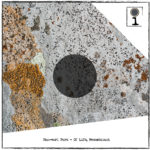
Of Life, Recombinant (NEWJAiM9) [details…]
Personnel: Han-earl Park (guitar) with Anne Wellmer (voice on track 4).
Track listing: Game: Mutation (5:38); Naught Opportune (≥ 10:42); Are Variant (≥ 8:06); Of Life, Recombinant (≥ 29:22). Total duration ≥ 53:48.
© 2021 NEWJAiM Recordings.
℗ 2021 Han-earl Park.
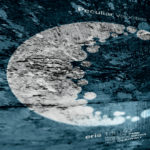
Peculiar Velocities (BAF002) [details…]
Personnel: Han-earl Park (guitar), Catherine Sikora (saxophone) and Nick Didkovsky (guitar).
Track listing: Ballad of Tensegrity I (≥ 5:12), Ballad of Tensegrity II (2:28), Peculiar Velocities I (3:46), Peculiar Velocities II (3:36), Sleeping Dragon (5:22), D-Loop I (≥ 6:16), D-Loop II (5:13), Polytely I (≥ 5:01), Polytely II: Breakdown (5:33), Anagnorisis I (2:09), Anagnorisis II (2:19). Total duration ≥ 46:54.
© + ℗ 2020 Han-earl Park.
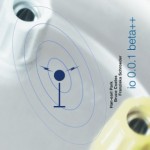
io 0.0.1 beta++ (SLAMCD 531) [details…]
Personnel: io 0.0.1 beta++ (itself), Han-earl Park (guitar), Bruce Coates (alto and sopranino saxophones) and Franziska Schroeder (soprano saxophone).
Track listing: Pioneer: Variance (11:52); Pioneer: Dance (13:13); Ground-Based Telemetry (1:42); Discovery: Intermodulation (9:08); Discovery: Decay (5:08); 4G (0:59); Laplace: Perturbation (10:21); Laplace: Instability (3:08); Return Trajectory (8:24). Total duration: 63:57.
© 2011 Han-earl Park. ℗ 2011 SLAM Productions.





